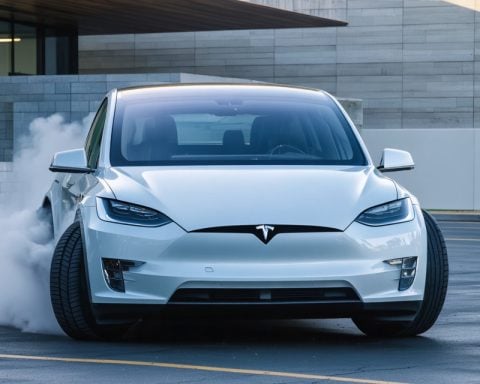Solaris Bus & Coach has recently solidified a noteworthy partnership with transport operator Keolis Sverige for the delivery of 46 environmentally friendly battery-electric buses destined for the Dalarna region. This exciting venture comprises 19 units of the 12-meter Solaris Urbino 12 electric and 27 of the larger 15-meter Solaris Urbino 15 LE electric models. The introduction of these buses will occur in two phases, with the larger models set to hit the roads first in 2025, followed by the smaller units in 2026.
The importance of this transition to zero-emission public transport cannot be overstated. The CEO of Solaris Sverige AB highlighted the crucial role such developments play in transforming urban mobility—an initiative that aligns with global sustainability goals.
The Solaris Urbino 12 electric, notably popular among European transport agencies, is designed for urban routes, accommodating up to 61 passengers. It boasts cutting-edge High Energy batteries with a hefty total capacity of 600 kWh, enabling full-day operation. Alongside, the Urbino 15 LE electric caters to both city and intercity journeys. This version, hosting up to 72 passengers, also ensures safety with three-point seatbelts and advanced operational features.
The buses are outfitted with modern conveniences, including air-conditioning, USB charging ports, and state-of-the-art safety systems like collision avoidance technology. This contract reinforces Solaris’ reputation as a trailblazer in zero-emission transport solutions, marking a significant advance towards greener mobility in Sweden and beyond.
Revolutionizing Urban Mobility: Solaris Partners with Keolis Sverige for Green Buses
Introduction
In a step towards a more sustainable future, Solaris Bus & Coach has forged a significant partnership with Keolis Sverige to deliver 46 battery-electric buses to the Dalarna region of Sweden. This initiative not only emphasizes the importance of transitioning to zero-emission public transport but also showcases the innovative solutions that Solaris brings to urban mobility.
Overview of the Partnership
The collaboration includes a fleet composed of 19 units of the 12-meter Solaris Urbino 12 electric and 27 units of the larger 15-meter Solaris Urbino 15 LE electric models. The deployment of these buses will occur in two phases: the larger models are expected to start operating in 2025, followed by the smaller units in 2026.
Features of the Solaris Urbino Electric Buses
1. Capacity:
– Solaris Urbino 12 Electric: Accommodates up to 61 passengers.
– Solaris Urbino 15 LE Electric: Hosts up to 72 passengers, making it suitable for both urban and intercity routes.
2. Battery Technology:
– Both models are equipped with advanced High Energy batteries, totaling a capacity of 600 kWh, ensuring they can operate efficiently throughout the day without needing frequent recharges.
3. Safety Innovations:
– The buses include crucial safety features such as three-point seatbelts and collision avoidance technology, underscoring a commitment to passenger safety.
4. Modern Amenities:
– With air-conditioning, USB charging ports, and space optimization for passenger comfort, these buses cater to the needs of urban commuters.
Environmental Impact and Trends
The shift towards electric buses is part of broader global sustainability initiatives aimed at reducing carbon emissions and minimizing the impact of public transport on the environment. The CEO of Solaris Sverige AB has emphasized the transformative potential of such developments in urban mobility, aligning with Sweden’s commitment to sustainable transportation solutions.
Market Analysis
As cities worldwide seek ways to combat air pollution and promote eco-friendly travel options, the demand for electric buses is on the rise. Solaris’s investment in electric vehicle technology positions them favorably within this expanding market, making them a leader in the zero-emission bus sector.
Pros and Cons of Electric Buses
Pros:
– Zero Emissions: Contributes to cleaner air and reduced environmental impact.
– Operational Efficiency: Lower fuel and maintenance costs compared to diesel buses.
– Enhanced Passenger Experience: Modern features improve comfort and safety.
Cons:
– Initial Investment: The cost of electric buses and infrastructure can be high.
– Limited Charging Infrastructure: Some regions may lack adequate charging facilities, impacting operations.
Conclusion
Solaris’s collaboration with Keolis Sverige represents a significant advancement in the pursuit of greener urban transport solutions. The deployment of these electric buses in Dalarna not only reflects the benefits of innovative transport technology but also signals a broader commitment to sustainability in public transportation across Europe and beyond.
For more information on Solaris and their commitment to zero-emission transport solutions, visit Solaris Bus & Coach.


















